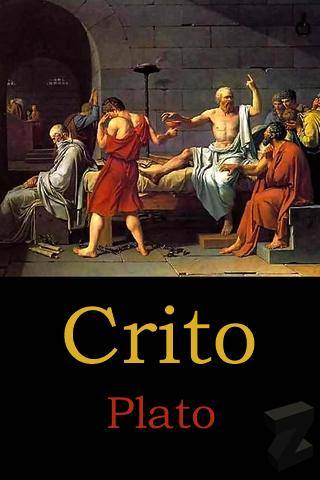My favourite philosophy book is also one of the oldest: Crito, by the Ancient Greek philosopher, Plato.
It follows on from Apology, which describes the trial and conviction of Socrates.

Socrates has been convicted of civil disobedience and sentenced to death, and Crito deals with his conversation with his wealthy friend, (also called Crito), who has offered to help him escape.
The book (or dialogue, as it is known) follows the subsequent philosophical debate between the two men, as each tries to persuade the other that they are right.
When you first begin reading, you start off agreeing with Crito - as it seems so obvious that Socrates should do as he suggests.
However, the fascination of this book is how, during the debate that follows, Socrates forces small admissions from his friend, step-by-step, which - when added together - end up persuading Crito that Socrates is right to accept his punishment.
More surprisingly, perhaps, it isn't just Crito who is convinced of the value of Socrates' argument, by the end of their debate. The reader usually is, too - much to his or her surprise.
When I finished reading Crito, I couldn't believe that Socrates had also managed to persuade me that he was right to stay in prison, as - at the beginning - I was so convinced that, of course, he should escape.
I was so annoyed and astonished at what had happened, that I then had to read the book again, immediately - but with exactly the same outcome at the end!
Crito is a wonderful book, which is still relevant today - as it covers so many fascinating philosophical issues affecting society, such as justice and injustice, and whether we - as citizens - have a moral duty to uphold the law, even when we believe it to be wrong.
The dialogue is also surprisingly easy to read, and teaches you the most effective way to win an argument!